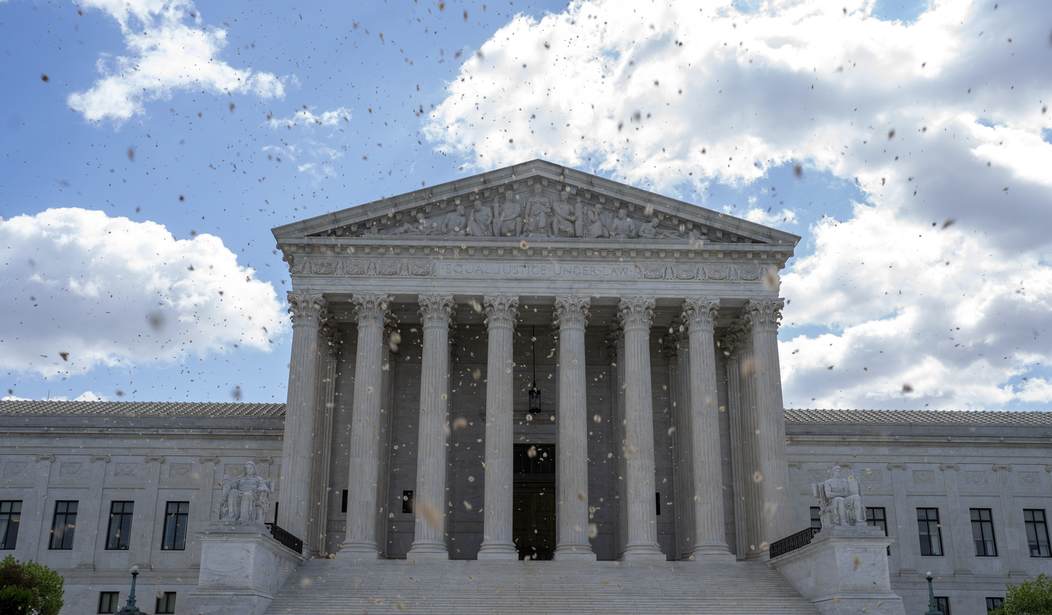The Supreme Court just ruled against the city of Philadelphia, which was trying to prevent Catholic Social Services (CSS) from helping children in foster care get placed in homes, due to CSS's views on homosexual marriage. Had the Supreme Court ruled differently, the case would have been heralded as a Pride Month win. But the Supreme Court went a different way. And this should give us hope that everything doesn't have to be about sex and politics. Sometimes it can be about our common humanity and the needs of the most vulnerable.
"Maximizing the number of foster families and minimizing liability are important goals, but the City fails to show that granting CSS an exception will put those goals at risk. If anything, including CSS in the program seems likely to increase, not reduce, the number of available foster parents." Thank you, Chief Justice John Roberts, for writing that in the decision. Thank you, Sonia Sotomayor, Elena Kagan and Stephen Breyer, for joining in this unanimous decision. We don't agree on a lot of things, and that's what makes this decision such a treasure.
The ruling has me thinking about a book by Mary Eberstadt, "It's Dangerous to Believe: Religious Freedom and Its Enemies," published in 2016. It was framed as a plea from a conservative Christian to people of good will on the left, saying that the secular mindset goes too far when it loses sight of pluralism and becomes hostile to real, lived religion.
Eberstadt asserted that the sexual revolution had effectively set up a religion to rival Judeo-Christian morality. This new creed "elevates pleasure and self-will to first principles." This understanding "explains the outsize hostility toward believers who have been minding their own business, or trying to educate their children, or expressing their faith in public forums -- or otherwise behaving in ways that that once invited no penalties and now do."
Recommended
This is what caused the city of Philadelphia to cut off ties with CSS, a storied and superior player in the foster-care and adoption space, because of its views on marriage and the family. And the good news is: The Supreme Court agrees with Eberstadt. Things have gone too far.
The ruling suggests that we can, in fact, work together for the good of children, even when we adults disagree on some fundamental things.
"Government fails to act neutrally when it proceeds in a manner intolerant of religious beliefs or restricts practices because of their religious nature," wrote Roberts in the decision. Again, thank you, Chief Justice John Roberts! This is how we live together, protecting religious freedom, even when we have disagreements about the nature of marriage and the human person.
In "It's Dangerous to Believe," Eberstadt writes: "Reasonable people of a-religious or even anti-religious inclination might also err on the side of magnanimity by acknowledging the possibility that believers have something to offer the wider society -- including not only their charitable operations, but also their expanding critique of a revolution that continues to transform the whole world."
She cites Jonathan Rauch, who was a proponent of same-sex marriage before it was law, who said: "If Catholic Charities doesn't want to place children for adoption with same-sex couples in Massachusetts, but lots of other agencies will make the placement, we can live with that." And so, it should be in Philadelphia and anywhere else there are children in need. As we head toward Independence Day, let's rally for freedom -- true pluralism in the United States again. It might just dial down our political and cultural temperatures.
Kathryn Jean Lopez is senior fellow at the National Review Institute, editor-at-large of National Review magazine and author of the new book "A Year With the Mystics: Visionary Wisdom for Daily Living." She is also chair of Cardinal Dolan's pro-life commission in New York. She can be contacted at klopez@nationalreview.com.

























Join the conversation as a VIP Member